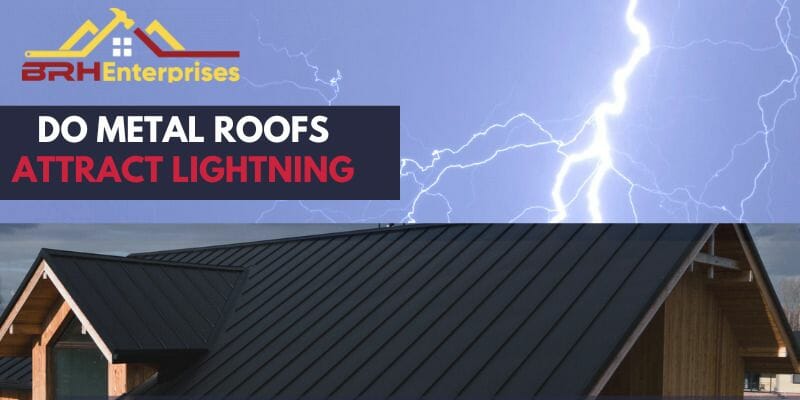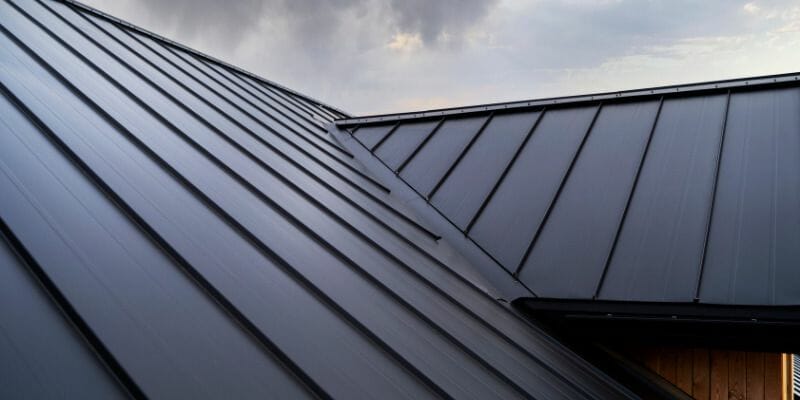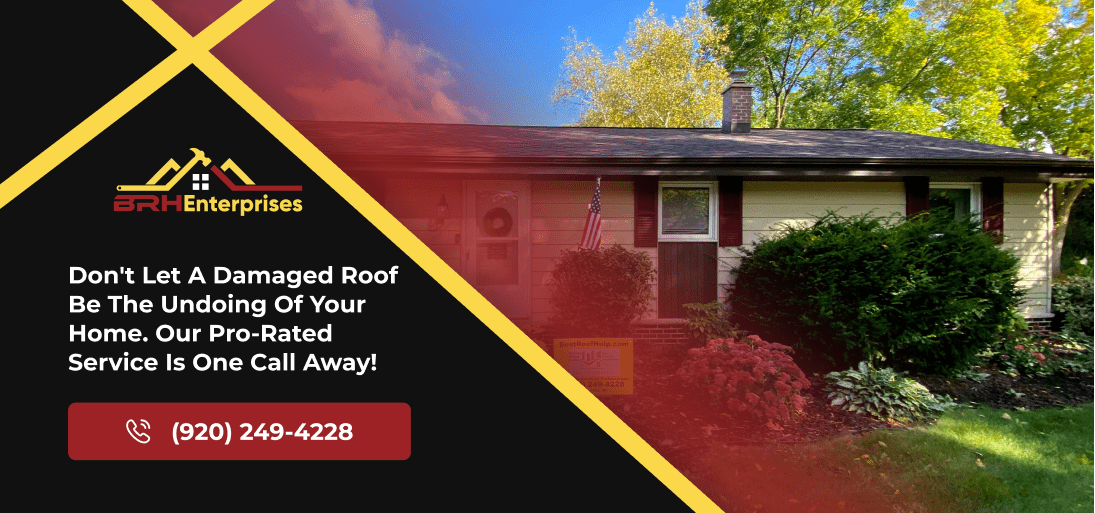Do Metal Roofs Attract Lightning?
Estimated Reading Time : 5 Min.

Do you want to install a metal roof on your home but have concerns about whether metal roofs attract lightning? No worries, you are not alone. Many homeowners who want to cover their homes with metal roofs ask the same question, “Do metal roofs attract lightning?”
This concern is understandable, as lightning is a powerful and destructive energy. In addition, metal roofs are known to be a good conductor of electricity, so you would assume that they are more likely to attract it. But, it is not a fact that metal roofs attract lightning. Additionally, there is no scientific evidence that suggests metal roofs are more likely to attract lightning than any other roofing material.
In this blog, we’ll explore the myth about metal roofs attracting lightning and why choosing a metal roof for your home is a smart and safe decision.
Metal Roofs and Lightning: The Truth
Despite the fact that metal roofs conduct electricity, scientific evidence supports the claim that metal roofs are not any more likely to attract lightning than other roofing materials. In fact, metal roofs can make a lightning strike less dangerous when it hits your home.
It is important to note that non-metal roofs can also be struck by lightning. The truth is any object that is tall enough and provides a direct path for the current to flow is at risk of being struck by lightning, regardless of its material.
The misconception that metal roofs are prone to be struck by lightning stems from the fact that metal is a good conductor of electricity and can easily transmit electrical charges. However, as mentioned earlier, the likelihood of a roof being struck by lightning has more to do with its height and location rather than its conductivity.
Metal roofs, because they are a good conductor of electricity, allow the current to pass through them easily without generating heat, which makes them safer to have on your home rather than a material that is more likely to ignite once struck.
What Influences The Path Of The Lightning?
It is important to address how many factors influence the path of lightning to the ground. Metal roofs are more likely to be struck if they satisfy the below factors.
The Height Of The Building
The height of the building is a major factor that influences lightning to strike it. However, it is still not the only factor. The climate, weather conditions, and other tall buildings in the surrounding area also define the path of lightning.
The higher a building is, the higher its chances of getting struck by lightning are. Electric currents find the shortest path to reach the ground, which tall buildings provide, allowing it to flow directly through the tall buildings from the clouds.
Topography
Topography refers to the physical features of the land, including its shape, elevation, and slope. Topography can influence the path of a lightning strike in several ways. For example:
- Elevation: Lightning is more likely to strike objects at higher elevations, such as mountaintops or tall buildings.
- Slope: Lightning is more likely to strike objects on slopes or hills, as these features can create a “pointy” shape that is easier for lightning to reach.
- Shape: The shape of the land can influence the path of a lightning strike. For example, a valley or canyon may channel a lightning strike along a particular path.
The conductivity of the roofing materials and the building, its location, climate, and the surrounding weather conditions also define the path lightening will take.
Metal Roofs Are Fire Resistant
An advantage of installing metal sheets on your roof is that they are fire-resistant. The non-combustible nature of metal sheets prevents your roof from catching fire in the event it’s struck by lightning.
Wood and shingles, in contrast to metal roofs, block the current from passing through and convert it into heat. This sudden high resistance that the electrical current is met with when it hits these materials cause the materials to heat up and ignite and may lead to fire or a small explosion if it’s near any electric objects like a satellite dish.
While in the case of metal roofs, since metal is a conductor, the electricity meets a path of least resistance and does not heat up or ignite the material. However, it is inaccurate to say that metal roofs provide 100% fire resistance. Like other roofing materials, they can still catch fire. If you live in an area with frequent storms and wildfires, it is important to take the proper safety measures so that you can prevent any misfortunate events from happening.

How Can You Protect Your Roof From Lightning?
There are several ways you can protect your home from lightning strikes, regardless of the type of roof you have. Some of the most effective methods include the following.
- Installing A Lightning Rod: A lightning rod is a metal rod or conductor that is installed on the highest point of your home. It is connected to a grounding wire that runs down the side of your home and into the ground. The lightning rod acts as a path for the lightning to follow, directing it away from your home and into the ground, where it can be safely dissipated.
- Installing A Surge Protector: A surge protector is a device that is designed to protect your home’s electrical system from voltage spikes, including those caused by lightning strikes. Surge protectors can be installed on your home’s main electrical panel, home appliances, and electronics.
- Following Proper Safety Measures During A Thunderstorm: It is important to follow proper safety measures to protect yourself and your home from lightning.
Some steps to take during a thunderstorm include staying indoors and away from windows, unplugging electronic devices and appliances, avoiding the use of landline phones, and avoiding taking a shower or bath.
It is also a good idea to have a plan in place for what to do in case of a lightning strike, such as having a designated safe room in your home and making sure there is a fire extinguisher on hand.
Overall, it is important to remember that the type of roof you have is not a significant factor in protecting your home from lightning. The most important thing is to follow proper safety measures and have a plan in place to protect yourself and your home during a thunderstorm.
Final Thoughts
Metal roofs have been passed over as a roofing option time and time again for their electrical conductivity. The fear and the myth that metal roofs attract lightning spread over the years until scientific research about them came to light. This research showed us that metal roofs alone are not responsible for lightning passing through them, but that factors like height, the topography of a certain area, and the neighboring building’s heights are factors as well.
However, when you install a roof, it is important to do specific coating for the metal roof to protect it from any natural disasters like lightning, storms, and hail.
If you want to install a metal roof on your home or commercial building, you are on the right page. Call the team at BRH Enterprise today at (920) 249-4228 for a free consultation.
To know about the metal roofing cost in Wisconsin, read our blog on how much metal roofing cost


